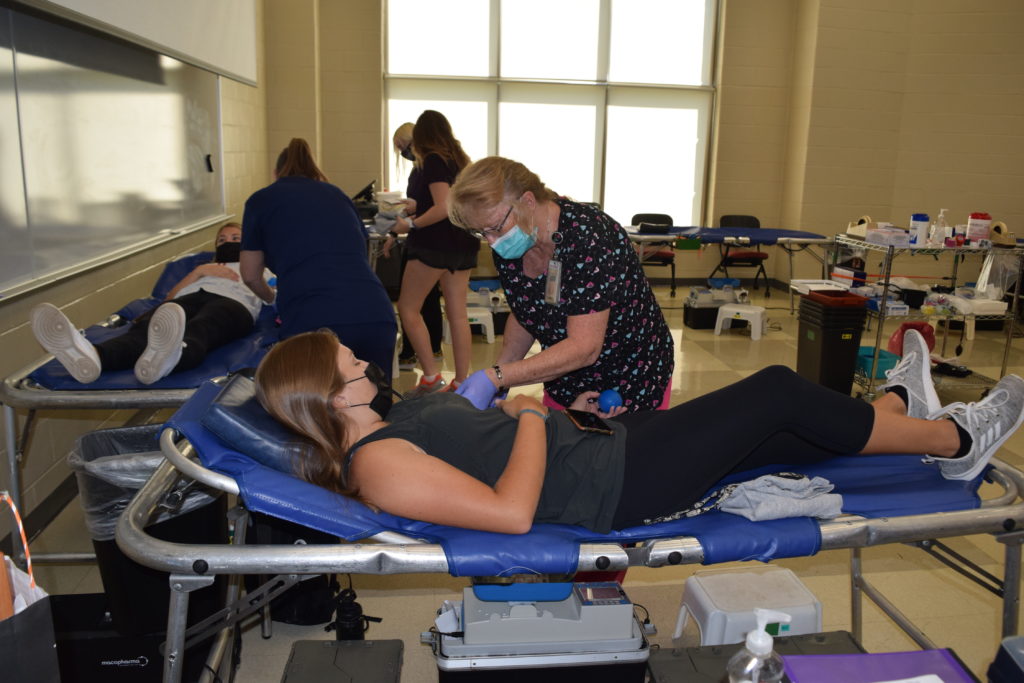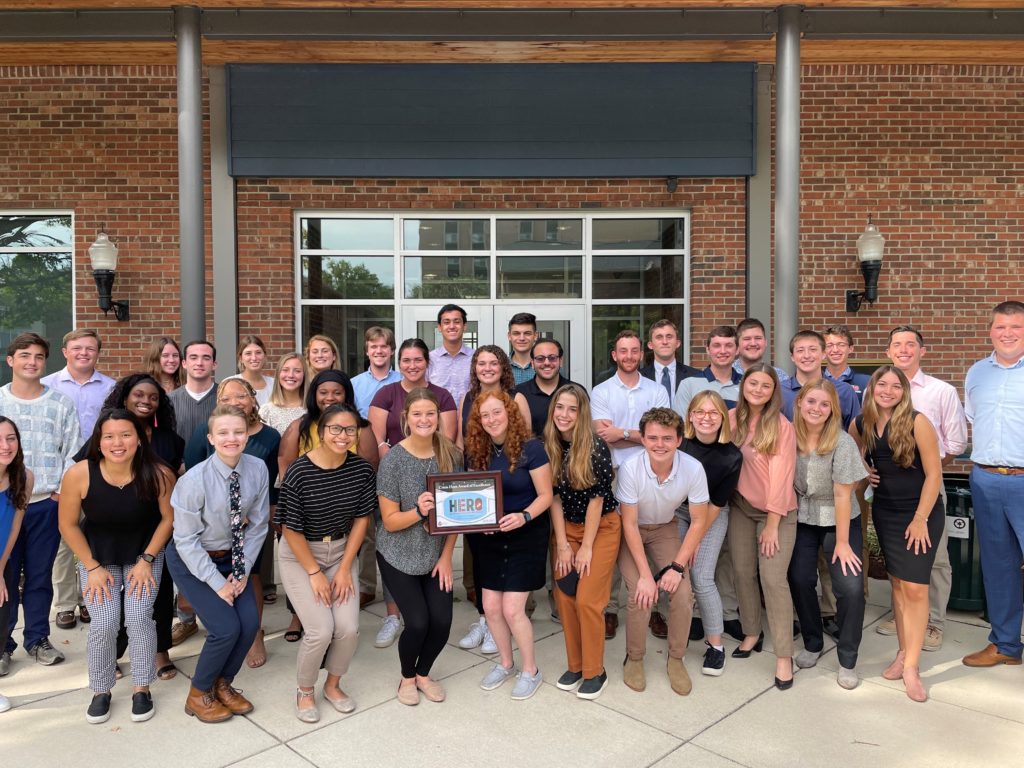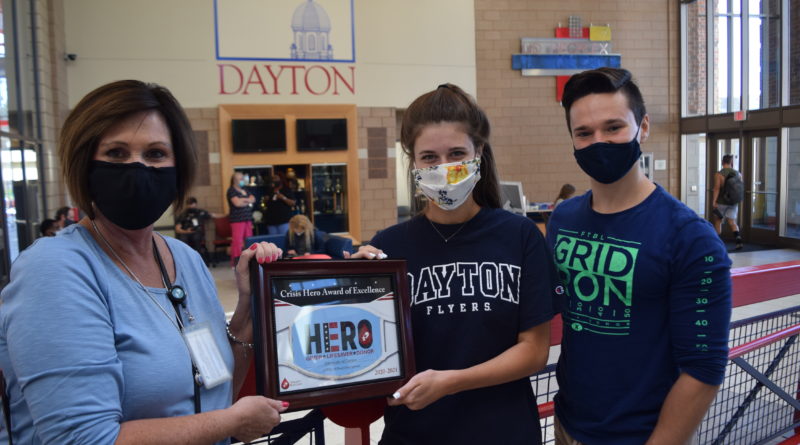SGA, students awarded for blood and plasma drives during pandemic
The Community Blood Center named several Crisis Hero Awardees at UD’s first drive of the school year. Photo courtesy of Mark Pompilio, Community Blood Center PR manager.
Grace DiPierro | Staff Writer
Community Blood Center presented Crisis Hero Awards of Excellence to the University of Dayton’sStudent Government Association and volunteers at the first blood drive this school year.
The university sponsored several blood and plasma drives throughout the COVID-19 pandemic that started during the fall of 2020. The blood drives last academic year reached a total of 429 donors, 158 of which were first-timers. Only two of the university’s scheduled drives were canceled in the 2020-21 year.
The blood drive on Sept. 29 was the first of eight for the 2021-22 academic year. That drive exceeded expectations, with 114% of the collection goal met. There were 86 total donors, including 31 first-time donors.

A Crisis Hero includes everyone who took part in hosting a blood drive during the pandemic, as well as those who contributed to the local and national demands for COVID-19 Convalescent Plasma by hosting plasma drives. UD met both of these criteria.
The Crisis Hero Award for blood drives was presented by Donna Teuscher to student volunteers Katie McCaslin and Scott Gorecke. McCaslin and Gorecke are members of the Red Cross Club, one of multiple organizations on campus that sponsored blood drives during the pandemic. SGA also sponsored the drives.
“UD Student Government President Natalie Coppolino called in October and asked if UD could help our community by setting up convalescent plasma drives,” Teuscher said. “They were so happy to get this award and appreciated the opportunity to work with CBC to help the community.”
The pandemic posed many challenges for the blood drives, including difficulty recruiting donors, decreased turnout and an ever-increasing need for plasma, especially from those who had recovered from COVID.
Blood drives followed social distancing guidelines, which spread beds out across the RecPlex gym, and limited the number of donors at one time, according to Gorecke. He also said it was a challenge to reach out to the community when everything had to be virtual.
To combat these challenges, messages were sent to students and alumni detailing the need for plasma. From Oct. 13 to Nov. 11, 2020, the university was able to host seven convalescent plasma drives.
CBC also honored SGA for their involvement with the blood and plasma drives. SGA launched “Crisis Warrior” COVID-19 Convalescent Plasma drives and successfully recruited donors who had previously recovered from the virus.

“SGA is dedicated to learning, leading and serving our community by the model of the Marianist Tradition,” SGA President Drew Moyer said. “This award helps solidify that SGA is continuing to strive to support the community around us.”
The next campus blood drive will be on Oct. 13 from 12 p.m. to 6 p.m. at the RecPlex.
In order to donate, donors must be at least 17 years old and are required to bring a photo ID with their full name. Past CBC donors should bring their CBC donor ID card. Depending on their height, donors must weigh a minimum of 110 pounds and be in good physical health.
Donors can still give blood or plasma even if they are not vaccinated, but they must be COVID symptom-free.
Students from this year’s first blood drive reported high expectations for the year, hoping that students stay healthy and safe as things shift back to normal.
For more campus news like Flyer News on Facebook and follow us on Twitter (@FlyerNews) and Instagram (@flyernews).

